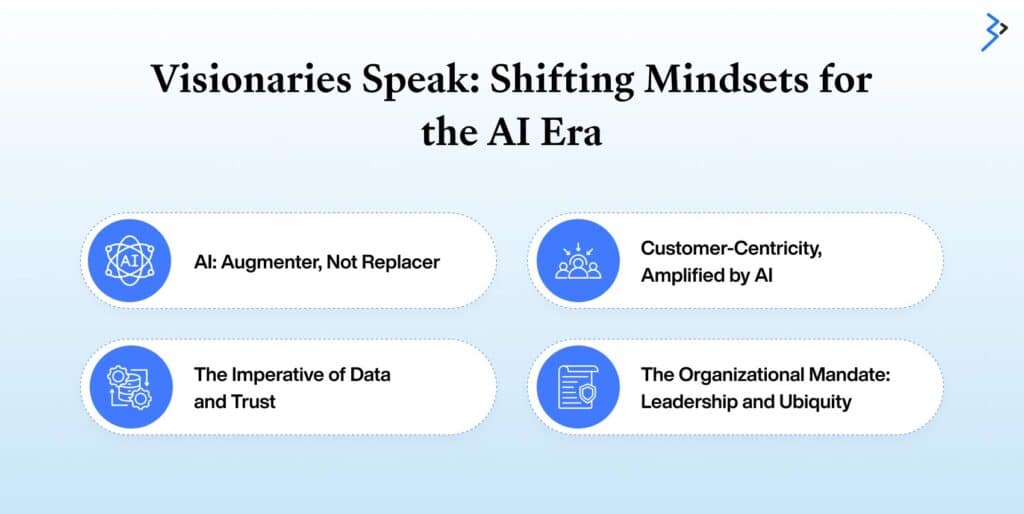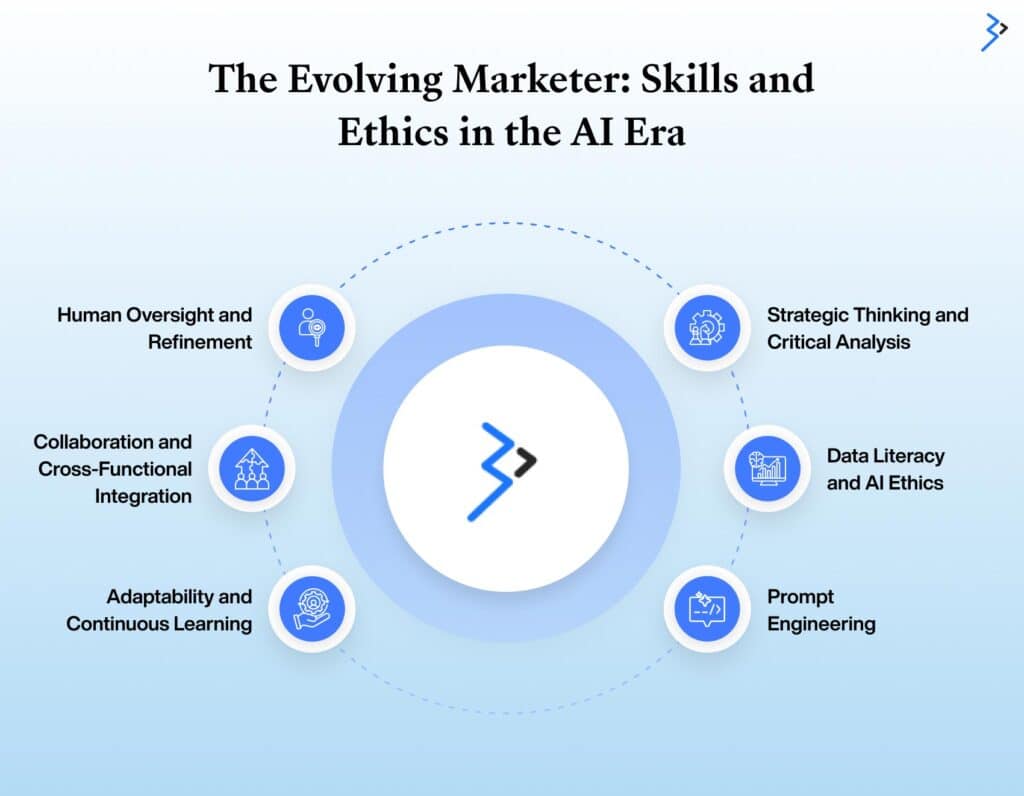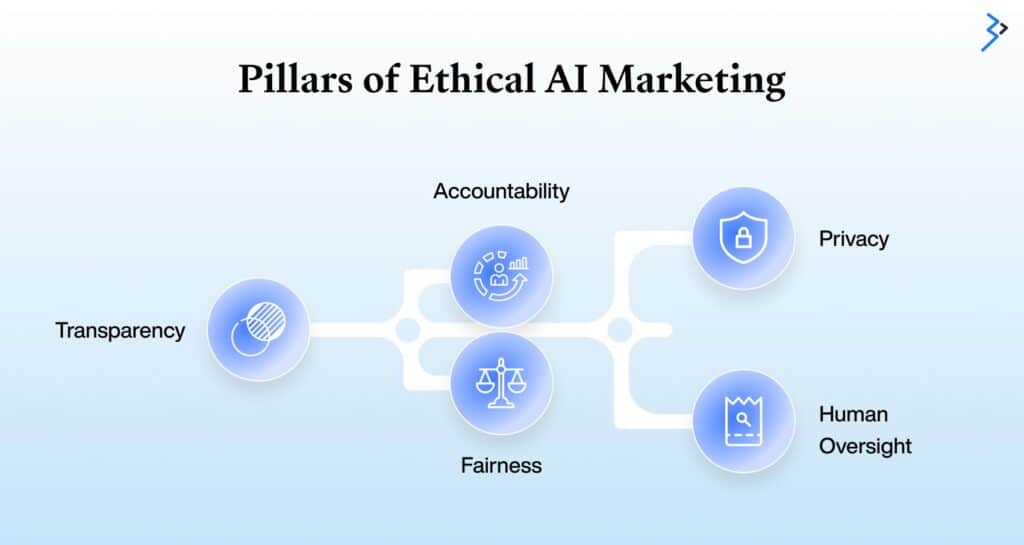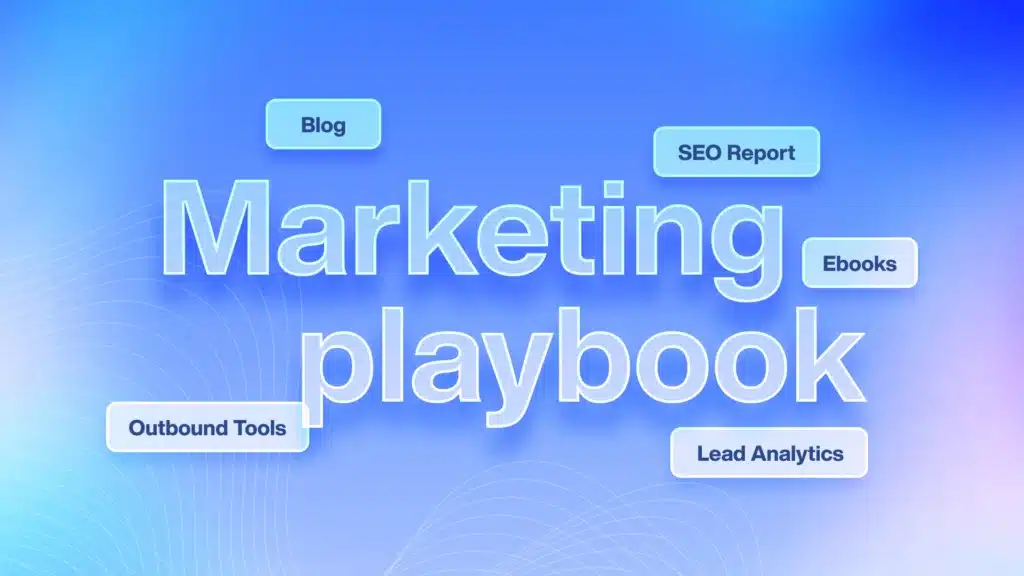The ground beneath marketing is shifting. Not subtly, not slowly, but with the tectonic force of a technological revolution unlike any we’ve witnessed before. Forget simply “adopting” AI; we are now in the era where AI is the bedrock of marketing. Brands that understand this are not just surviving; they are thriving, rewriting the rules of engagement, and building unprecedented connections with their customers. Those that don’t? They’re already playing catch-up, risking irrelevance in a landscape of hyper-personalization, instant responsiveness, and intelligent automation.
We’ve all seen the whispers turn into roars. AI isn’t a futuristic concept but a present-day reality transforming everything from campaign ideation to customer experience. But how do you, as a brand, harness this power? How do you move beyond mere experimentation to truly succeed?
The answers lie with the marketing visionaries, the leaders who are not just observing the change, but actively shaping it. They’re revealing a future where the strategic blend of human ingenuity and artificial intelligence development services is not just an advantage, but the absolute imperative for brand dominance.
The Exceptional Scale of the AI Revolution in Marketing
Let’s ground this conversation in reality. AI is already here, transforming every facet of the marketing function. The numbers speak for themselves:
- SEO.com reports that the global AI in marketing industry is valued at $47.32 billion in 2025, and projected to soar to over $107.5 billion by 2028. This represents a staggering 36.6% Compound Annual Growth Rate (CAGR) between 2024 and 2030.
- According to Duke Fuqua, 94.1% of marketers have integrated AI into their processes in the last three years, with 60.4% doing so in just the last 12 months.
- A remarkable 88% of digital marketers already use AI in their day-to-day tasks, as observed by SurveyMonkey.
This isn’t just about efficiency but competitive survival. As Ginni Rometty, former CEO of IBM, aptly put it, “AI will not replace humans, but those who use AI will replace those who don’t.” This isn’t fear-mongering. It’s a call to action.
Visionaries Speak: Shifting Mindsets for the AI Era

Successful brands see AI not just as a cost-cutting tool, but as a catalyst for growth and deeper customer connections. Marketing leaders reveal a fundamental shift in approach, driven by powerful insights:
“Artificial intelligence and generative AI may be the most important technology of any lifetime.”
- Marc Benioff, Salesforce CEO
Benioff’s bold statement emphasizes AI’s monumental impact. This isn’t just another tech cycle; it’s a foundational transformation. The competitive landscape is becoming fiercely competitive, and as Paul Daugherty, Group Chief Executive at Accenture, warns, “businesses that don’t deploy AI and data to help them innovate in everything they do will be at a disadvantage.” Embracing AI is a strategic imperative.
01 | AI: Augmentor, Not Replacer
Visionaries agree: AI won’t eliminate human roles, but it will liberate them from mundane tasks so they can focus on creativity, empathy, and strategy.
“The future of AI is not about replacing humans, it’s about augmenting human capabilities.”
- Sundar Pichai, CEO of Google
“Some people call this artificial intelligence, but the reality is this technology will enhance us. So instead of artificial intelligence, I think we’ll augment our intelligence.”
- Ginni Rometty, Former IBM CEO
Pichai and Rometty highlight AI’s true value: enhancing our abilities, making us smarter and more imaginative. SEO.com reports that 83% of marketers say AI frees up their time for strategic or creative work, letting 75% of marketing operations shift focus from production to strategy.
Bill Gates sees generative AI unleashing new ideas, products, and services that make us “easier, more productive, and more creative.”
02 | Customer-Centricity, Amplified by AI
AI’s power lies in understanding and predicting customer needs at scale. Marketing leaders insist AI deployment must always start and end with the customer.
“When deploying AI, whether you focus on top-line growth or bottom-line profitability, start with the customer and work backward.”
- Rob Garf, Salesforce Retail
Garf’s advice means AI should deepen customer connections. It enables hyper-personalization, delivering the right message, on the right channel, at the precise moment it’s most relevant.
Leading brands exemplify this:
- Netflix’s AI-driven recommendation engine is so effective that, according to GoodFirms, 75% of its revenue comes from content recommendations.
- Nike’s AI delivers personalized product recommendations and content via its NikePlus app, leading to 25% higher email click-through rates, as BrandXR reported.
- Starbucks’ “Deep Brew” engine uses loyalty data to send personalized offers, resulting in a 30% ROI increase and 15% higher engagement (BrandXR).
- Google uses AI extensively for personalized advertising and fine-tuning campaigns for superior engagement.

03 | The Imperative of Data and Trust
AI systems depend on the data they’re trained on, making clean, ethical, and transparent data practices crucial for fostering customer trust.
“The pace of progress in artificial intelligence is incredibly fast.”
- Jeff Bezos, Founder of Amazon
Bezos’s observation underscores the need for robust data governance. Clara Shih, Salesforce AI, emphasizes the complexity: “There’s no question we are in an AI and data revolution… But it’s not as simple as taking all of your data and training a model with it. There’s data security, there’s access permissions, there’s sharing models that we have to honor.”
This highlights the urgent need for responsible data stewardship. Concerns about data privacy and ethics, as well as inaccuracies and biases, underscore this point.
As widely acknowledged by tech leaders and worded by Aiden Gomez, co-founder and CEO of Cohere, “If your users can’t trust the technology, you’re not going to bring it into your product.”
Trust through transparency and user data control is paramount.
04 | The Organizational Mandate: Leadership and Ubiquity
Successful AI adoption requires more than just technology. It demands organizational readiness and top-down commitment.
“Harnessing machine learning services can be transformational, but for it to be successful, enterprises need leadership from the top. This means understanding that when machine learning changes one part of the business… then other parts must also change.”
- Erik Brynjolfsson, Stanford Institute for Human-Centered AI
Brynjolfsson emphasizes that AI is a holistic, enterprise-wide transformation requiring strong leadership across departments and processes.
- Coca-Cola’s “Create Real Magic” campaign with OpenAI showed how strategic AI adoption can revolutionize content, achieving 10–30x faster concept iteration and 38% higher messaging resonance, according to BrandXR.
- Amazon leverages AI to generate concise review summaries, demonstrating AI’s ability to distill vast content for customer understanding.
- Sephora uses AI for its “Virtual Artist” AR feature, turning content engagement into immediate commerce, and its chatbots enhance the shopping journey.
These applications highlight AI’s power to analyze data, predict trends, and optimize conversion paths, enhancing efficiency and ROI. Indeed, as SEO.com reports, 81% of digital marketing services report that AI increases brand awareness and sales.
“Right now, people talk about being an AI company… It’ll be unthinkable not to have intelligence integrated into every product and service.”
- Sam Altman, OpenAI CEO
Altman’s insight shows AI’s inevitable ubiquity. Just as mobile became foundational, AI will be an integrated layer across all products and services. Hence, Emad Mostaque, former CEO of Stability AI, urges, “We see the wave coming. Now this time next year, every company has to implement it, not even have a strategy. Implement it.”
The message is clear: decisive action is now essential.
Read More – Top AI Marketing Tools We’re Using to Get Ahead in 2025
The Evolving Marketer: Skills and Ethics in the AI Era

The rise of AI doesn’t diminish the marketer’s role; it elevates it. The focus is shifting from execution to strategy and innovative problem-solving. To fully harness AI’s potential, marketing teams must cultivate new competencies, always prioritizing ethical deployment and human oversight.
New essential skills include:
- Strategic Thinking and Critical Analysis: AI provides answers; humans must ask the right questions and evaluate outputs critically.
- Data Literacy and AI Ethics: Understanding how AI uses data, recognizing potential biases, and ensuring transparent, fair deployment. Remember, 43% of businesses are concerned about AI content inaccuracies or biases according to an SEO agency highlighting the need for human responsibility.
- Prompt Engineering: Crafting precise and effective instructions for generative AI tools is now crucial for content creation. For polished AI-generated copy, marketers can use Undetectable AI to refine outputs for a natural, human tone
- Adaptability and Continuous Learning: The AI landscape evolves rapidly, so marketers must be “super learners,” agile, and constantly upskilling.
- Collaboration and Cross-Functional Integration: AI demands closer teamwork across marketing, IT, sales, and product teams for seamless customer journeys.
- Human Oversight and Refinement: AI tools are powerful, but the final insight, brand voice, and authentic human touch must come from human judgment.
As AI becomes more pervasive, ethical considerations are paramount. Brands must prioritize:
- Transparency and Disclosure: Be upfront about AI usage in content or experiences.
- Data Privacy and Security: Rigorously comply with regulations, ensuring explicit consent and protecting customer data.
- Bias Mitigation: Actively audit AI models for biases that could lead to unfair targeting.
- Human Oversight: Always maintain human checks and balances; AI assists, it doesn’t replace.
- Value-Driven Personalization: Use AI to empower customers and provide genuine value, not just to push sales.
These principles are the Pillars of Ethical AI Marketing:

| Pillar | Description |
| Transparency | Openness about AI’s role in interactions and content. |
| Accountability | Assigning responsibility for AI outcomes and potential harms. |
| Fairness | Ensuring AI models do not perpetuate or amplify biases. |
| Privacy | Protecting customer data and respecting consent. |
| Human Oversight | Maintaining human control and judgment over AI-driven decisions. |
Conclusion: Your Brand’s Future, Powered by AI
The visionaries are clear: success hinges on embracing AI not as a threat, but as an unparalleled opportunity to deepen customer relationships, free creative potential, and drive remarkable efficiency.
At Brainvire, we’re committed to guiding brands through this exciting transformation. We believe that by strategically integrating AI, building a culture of continuous learning, and upholding ethical principles, your brand can not only adapt to this new era but lead it.
The future of marketing is intelligent, personalized, and profoundly human. Are you ready to seize it?
Frequently Asked Questions (FAQs)
AI is fundamentally reshaping SEO. Generative Search Experiences (GSEs) are becoming more prevalent, meaning users might get answers directly from AI without clicking through websites. To succeed, brands must create high-quality, authoritative, and beneficial content that AI models can easily understand and trust. Optimizing for conversational queries and anticipating user intent (not just keywords) becomes even more critical.
While AI automates repetitive tasks, marketing visionaries emphasize it’s an augmentation, not a replacement. 83% of marketers report AI frees up their time for strategic and creative work. The demand for human skills like critical thinking, empathy, strategic ideation, and human oversight in reviewing AI outputs is actually increasing. Marketers are becoming “AI orchestrators.”
The top concerns include data privacy and security (how customer data is used and protected), algorithmic bias (AI models perpetuating unfair targeting or content), and transparency (customers not knowing when they’re interacting with AI). To build and maintain trust, brands must prioritize ethical AI governance, human oversight, and clear communication with their audience.
Many powerful AI tools are now accessible through affordable SaaS subscriptions (e.g., AI copywriting tools, social media management with AI features, basic personalization platforms). SMBs can start by automating specific, time-consuming tasks like content ideation, ad copy generation, or initial customer service responses via chatbots, incrementally building their AI capabilities.
Prompt engineering is crafting effective, clear, and precise instructions (prompts) for generative AI models to get the desired output. For marketers, this means knowing how to instruct AI to generate on-brand copy, diverse content variations, or specific creative ideas. It’s crucial for maximizing AI’s creative potential and ensuring outputs align with brand strategy.
Related Articles
-
Pix2PixHD Explained: Generating Realistic High-Res Images with GANs
Your blueprints look perfect. Now, how fast can you make them look real? For years, photorealistic visuals for industries like real estate, automotive, and eCommerce were a major bottleneck. Turning
-
Maximizing Employee Engagement with AI-Driven HR Strategies
Did you know the average time to fill a role is 36 days? Among the numerous HR activities, the recruitment process involves multiple layers and is time-consuming. Incorporating AI in employee
-
AI-Driven Fintech Apps: Preparing for the Next Generation of Digital Banking
The pace at which the financial sector is transforming is remarkable. Traditional banks with physical branches are being rapidly overshadowed by digital-first experiences that offer personalization, speed, and predictive intelligence,




